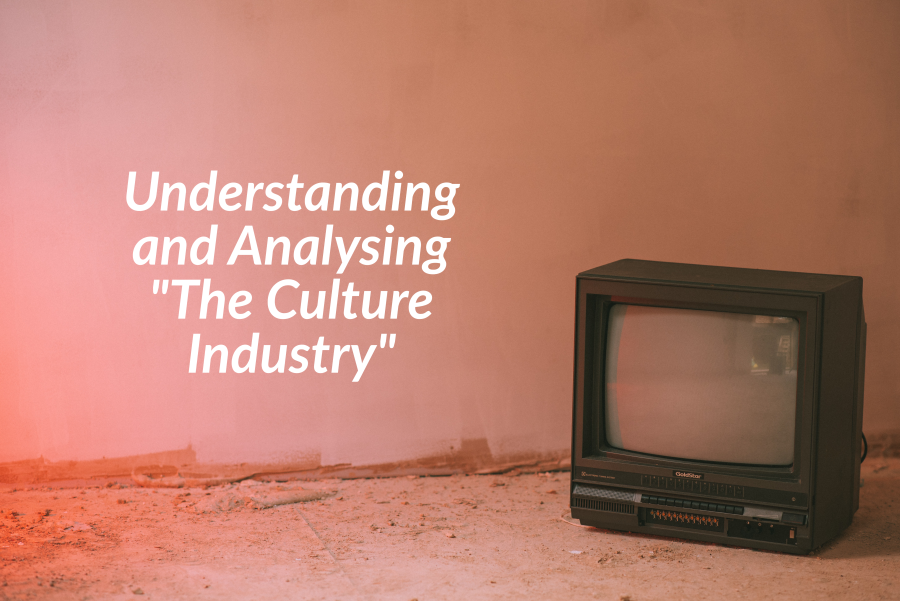Ideas and critical theories surrounding the concept of the culture industry were created by sociologists Max Horkheimer and Theodor W. Adorno, key members of the Frankfurt school of sociologists and critical philosophers. Both of them were Marxist theorists who were highly critical of capitalist ideas and questioned why people didnŌĆÖt revolt against the manipulation of such an ideology.
Horkheimer and Adorno coined the term ŌĆ£The Culture IndustryŌĆØ in their book Dialectic of Enlightenment. The concept of the term surrounds the idea that the media has taken art and capitalised on it for profit as well as consolidating it, therefore making everything the same, but also intentionally creating the illusion of choice. To present this, the analogy of the car industry is used, in which the theorists use the following statement ŌĆ£the difference between the models of Chrysler and General Motors is fundamentally illusory is known by any childŌĆØ Horkheimer and Adorno (2002).
This suggests that we can see that things are the same, but the different features of those things change the meaning that those items have, therefore creating the illusion of a fundamental difference. Expensive supercars are associated with luxury, power and wealth, but functionally they are identical to a run-of-the-mill family car.
Horkheimer and Adorno also used their theory of culture industry to try and understand the reason why people accepted the manipulation that the capitalist ideology had. They concluded that ŌĆ£Culture has always contributed to the subduing of revolutionary as well as of barbaric instincts.ŌĆØ And that industrial culture ŌĆ£inculcates the conditions on which implacable life is allowed to be lived at allŌĆØ Horkheimer and Adorno (2002). This in essence explains that culture deliberately tries to suppress uncivilised actions such as revolution. Additionally, industrial culture controls how you should act as a person and how people who donŌĆÖt conform are viewed as lesser.
This can be seen in right-wing media coverage of strike action, which is often extremely critical of workers rising against injustice and often labels them as selfish or greedy. In such an example it comes across as an attempt to maintain control and discourage people from rising against poor treatment under capitalist structures.
However, one could argue that the views of Horkheimer and Adorno are very elitist, especially regarding their opinions of mass culture which they had very cynical and narrow-minded ideas. For example, their statement that the idea of the illusion of difference should be known by a child is a very blinkered way of thinking as that assumes that all products are identical and implies that it should be something that someone learns as a child.
Their theory also assumes that people are only able to passively receive and understand information but considering the developments of internet technologies and social media, things have changed significantly. Media theorist Clay Shirky states ŌĆ£Now people can talk back to the media outletsŌĆØ LinkedIn (2012) in response to the idea that media consumption is exclusively passive. This idea that Shirky brings forward is that with mass communication between people being freely available, they are allowed to be openly critical or engaged in media products rather than just passively viewing them.
References:
Horkheimer, M. and Adorno, T.W. (2002). The Culture Industry: Enlightenment as Mass Deception. In: Gunzelin Schmid Noeri (ed.). Dialectic of Enlightenment. Stanford University Press, 94ŌĆō136. Available from https://doi.org/10.1515/9780804788090-007.
Linkedin. (2012). TechConnect:12 Silicon Valley: Clay Shirky presents ŌĆśThe End of the AudienceŌĆÖ.┬ĀYouTube. Available from https://www.youtube.com/watch?v=-8ChDh-_y8Q.
Photo by Anete Lusina from Pexels: https://www.pexels.com/photo/aged-television-set-reflecting-old-house-near-wall-5721909/
ŌĆī


Great read. Very straight to the point. True, both Horkheimer and Adorno are quite elitist in their views, comparing the common consumer to a child is downright disrespectful. If they feel so strongly about this stoic mindset of choosing what is needed not desired, then they can follow the plight of Diogenes. I also think that this mindset that people are entirely passive consumers is just a massive generalization, and people are not just force fed what the culture demands from them, they can choose whether to consume it or not.
Overall, this is a very straight forward read. Clear and concise.